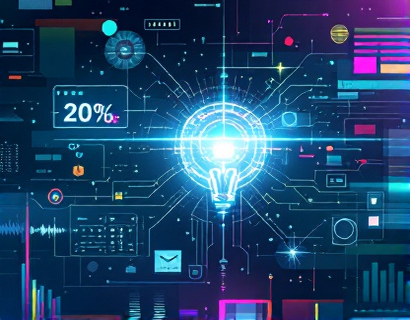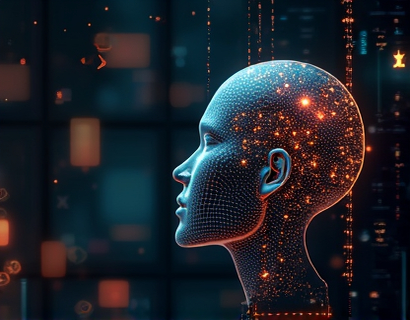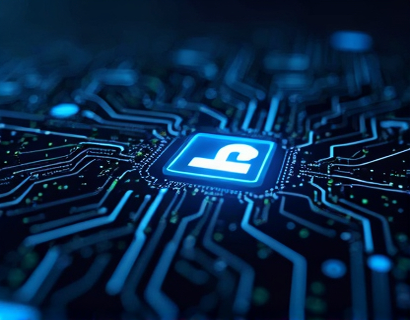Revolutionizing Digital Engagement: The Synergy of Crypto and AI
The intersection of cryptocurrency and artificial intelligence (AI) is ushering in a new era of digital engagement, transforming how users interact with technology and each other. This convergence is not just a technological advancement but a paradigm shift that promises to unlock unprecedented levels of user engagement and growth across various sectors. As tech enthusiasts and professionals delve into the latest innovations, understanding the dynamics between crypto and AI becomes crucial for anyone looking to stay ahead in the rapidly evolving tech landscape.
The integration of AI into cryptocurrency platforms is redefining the way digital assets are created, traded, and managed. Smart contracts, powered by AI algorithms, are automating complex financial transactions with precision and efficiency. These contracts execute automatically when predefined conditions are met, reducing the need for intermediaries and minimizing human error. This not only speeds up processes but also enhances security and transparency, key factors that have historically been challenges in the crypto space.
One of the most significant applications of AI in cryptocurrency is in predictive analytics. Machine learning models can analyze vast amounts of historical data to forecast market trends with remarkable accuracy. This capability allows investors to make more informed decisions, potentially leading to higher returns. Moreover, AI-driven trading bots can execute trades at optimal times, further optimizing investment strategies. The synergy between AI and crypto is creating smarter, more responsive financial systems that adapt to market dynamics in real-time.
Beyond financial applications, the combination of crypto and AI is revolutionizing digital identity management. Blockchain technology, inherently secure and decentralized, provides a robust foundation for storing and verifying digital identities. AI enhances this by enabling biometric authentication and behavioral analysis, ensuring that only authorized users access sensitive information. This dual approach not only boosts security but also streamlines user verification processes, reducing friction and enhancing the overall user experience.
The rise of decentralized applications (dApps) is another area where crypto and AI are making significant strides. dApps leverage blockchain to offer decentralized versions of traditional applications, from social media platforms to gaming environments. AI plays a pivotal role in personalizing user experiences within these dApps. By analyzing user behavior and preferences, AI algorithms can tailor content and features, making each interaction more relevant and engaging. This level of personalization is a game-changer, fostering deeper user connections and loyalty.
In the realm of cybersecurity, the fusion of crypto and AI is proving invaluable. Cryptocurrencies inherently offer a level of security through cryptographic techniques, but AI takes this to the next level by detecting and mitigating threats in real-time. Machine learning models can identify patterns indicative of malicious activities, such as fraudulent transactions or DDoS attacks, and respond swiftly to neutralize threats. This proactive approach to security is essential in a digital world where cyber threats are becoming increasingly sophisticated.
The impact of AI on blockchain scalability is also noteworthy. Traditional blockchain networks often face limitations in transaction processing speed and throughput. AI algorithms can optimize network operations, manage resource allocation, and predict bottlenecks, thereby enhancing scalability. For instance, AI-driven consensus mechanisms can adapt dynamically to network conditions, ensuring smooth and efficient transaction processing. This optimization is crucial for the widespread adoption of blockchain technology in various industries, from finance to supply chain management.
Another exciting development is the emergence of AI-powered crypto wallets. These wallets use machine learning to provide users with insights into their transaction patterns, security risks, and investment opportunities. By analyzing historical data, AI can offer personalized recommendations, helping users manage their digital assets more effectively. Additionally, AI can enhance the user interface of wallets, making them more intuitive and user-friendly, which is essential for attracting a broader audience to the crypto space.
The integration of AI in crypto also extends to the creation and management of non-fungible tokens (NFTs). AI algorithms can generate unique digital assets with distinct attributes and value propositions, catering to diverse creative and commercial needs. In the art and collectibles market, AI-driven NFTs can offer dynamic and interactive experiences, pushing the boundaries of digital ownership and authenticity. This fusion not only opens new revenue streams but also democratizes access to digital art and collectibles.
In the broader tech ecosystem, the convergence of crypto and AI is driving innovation in various sectors. In healthcare, AI-enhanced blockchain platforms can secure patient data while enabling seamless data sharing among healthcare providers. This ensures compliance with privacy regulations while improving the quality and efficiency of medical services. In the Internet of Things (IoT), AI-powered blockchain can secure device communications and data transactions, creating a more reliable and secure IoT environment. These applications demonstrate the transformative potential of combining crypto and AI across different industries.
For tech enthusiasts and professionals, staying informed about these advancements is vital. The rapid evolution of crypto and AI technologies requires continuous learning and adaptation. Resources such as online courses, tech blogs, and industry conferences play a crucial role in keeping professionals updated on the latest trends and innovations. Platforms that focus on SEO optimization, like the one described, ensure that valuable information is easily accessible, fostering a community of informed and engaged individuals.
The future of digital engagement is undoubtedly intertwined with the synergy of cryptocurrency and artificial intelligence. As these technologies continue to mature and integrate more deeply into our digital lives, the possibilities for enhanced user experiences and unprecedented growth are limitless. Whether it's through smarter financial systems, secure identity management, personalized dApps, robust cybersecurity, or innovative NFTs, the combination of crypto and AI is set to redefine the digital landscape. For those looking to harness the power of these technologies, embracing the latest trends and tools will be key to success in the ever-evolving tech world.











































